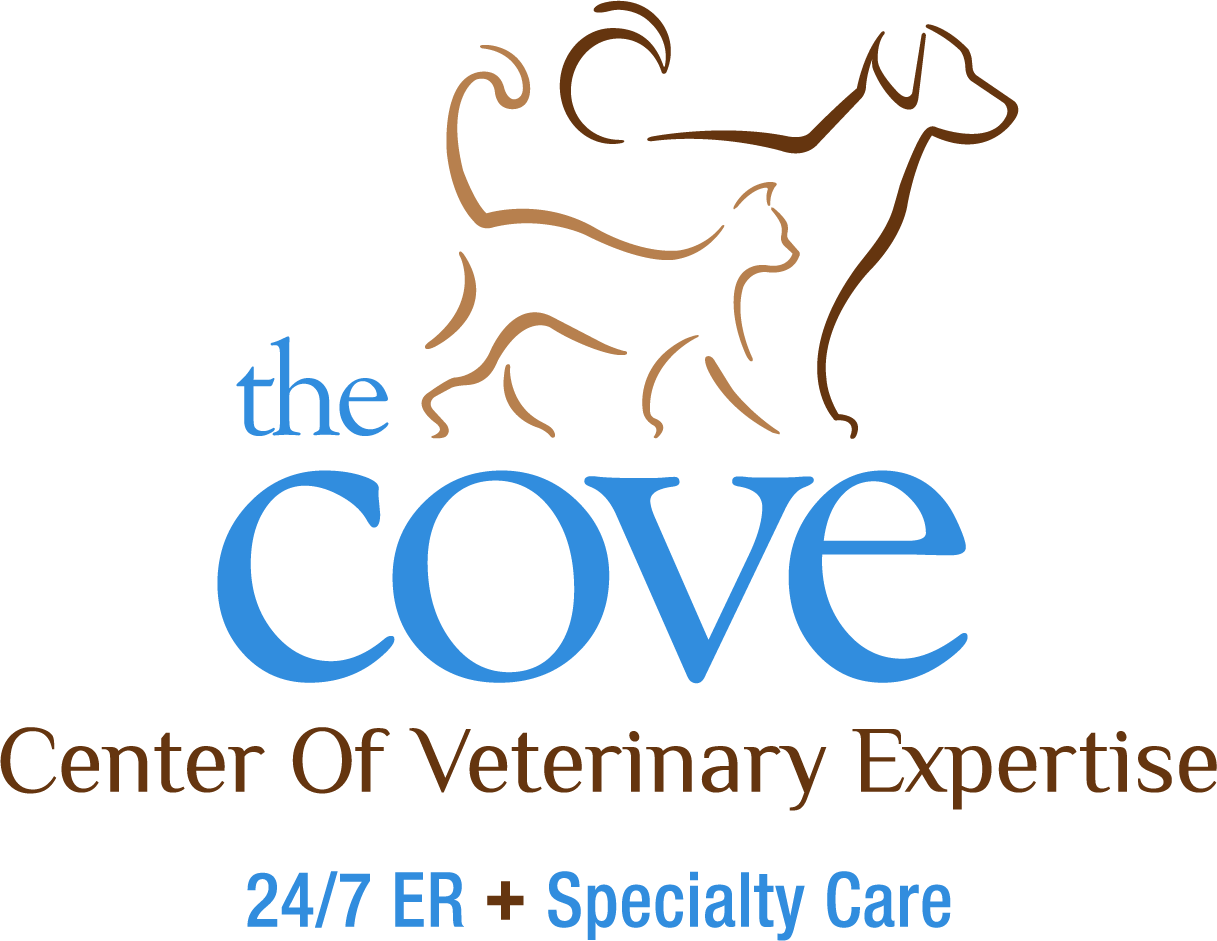Our beloved cats and dogs can be poisoned by a vast array of things around our homes—including human foods, plants, and many other items. Poisoning is life-threatening and requires immediate treatment. But the best approach is to prevent poisonings from occurring in the first place.
For National Poison Prevention week, beginning March 18, here at The COVE, we are spreading the word about the all-too-frequent tragedy of pet poisoning and how to keep pets safe. We’d also like to educate pet owners on how to recognize the signs of poisoning and what to do.
Poison Control is the Most Important Thing You Can Do
Important steps to keeping your dog or cat safe include locking medicine and cleaning supplies away and keeping trash out of your pet’s reach. Also, please recognize that pets can get poisons on their paws, and then lick their paws—effectively ingesting the toxins. An example of this would be sidewalk ice-melts, pesticides, herbicides, fertilizers, and antifreeze. Below are some common items that cause pet poisonings, though there are many others. So, always do research and ask your veterinarian before exposing your pet to anything you question. Make sure you have the local Poison Control phone number accessible, and even add it as a contact in your mobile phone. Poison Control toxicologists are important resources and often work closely with veterinarians in many pet-poisoning cases.

10 Household Items that are Toxic to Pets
- Antifreeze
- Beer, wine, liquor – all alcohol
- De-icer/ice-melt/rock-salts with any of these ingredients: chlorides, calcium magnesium acetate, CMA, or calcium chloride
- Household cleaners – click here for a complete list
- Many human foods – chocolate, anything with caffeine, garlic, onions, grapes, raisins, macadamia nuts, and many more. For the complete list click here.
- Moldy or spoiled food
- Most human medications (over-the-counter and prescription)
- Pesticides, herbicides, fertilizers, mouse/rat poisons (or eating a poisoned rodent)
- Plants – click here for a complete list
- Spot-on flea/tick medication for dogs (poisonous to cats)
- Vomiting and/or diarrhea (the system is trying to get toxins out)
- Your pet appears dizzy, is staggering, and/or seems disoriented
- Loss of consciousness
- Panting heavily for over 30 minutes
- Wheezing or crackles with breathing
- Increased heart rate
- Low appetite for over a day
- Change in tongue/gum color

If you see any of these poisoning symptoms, act fast. When it comes to life-threatening situations, every minute counts. When in doubt, call your veterinarian or the ASPCA Animal Poison Control Center 24-hour emergency poison hotline at 888-426-4435.
Timely identification of the toxic substance is critical. Having the container, package, or label in hand will save valuable time and may save your pet’s life. Please know that at The COVE, you do not need an appointment or referral to receive emergency services. However, if possible, please call first—757-935-9111—so that we can prepare for your arrival. We will always communicate with your pet’s primary care veterinarian regarding your pet’s condition to ensure continuity of care and appropriate follow-up.
About Us
The COVE’s veterinarians and staff wholeheartedly embrace the core values of community, collaboration, commitment, compassion, and integrity. This focus ensures that pets, the people who love them, and their primary care veterinarians have as positive and affirming a healthcare experience as possible, regardless of the circumstances that bring us all together.
